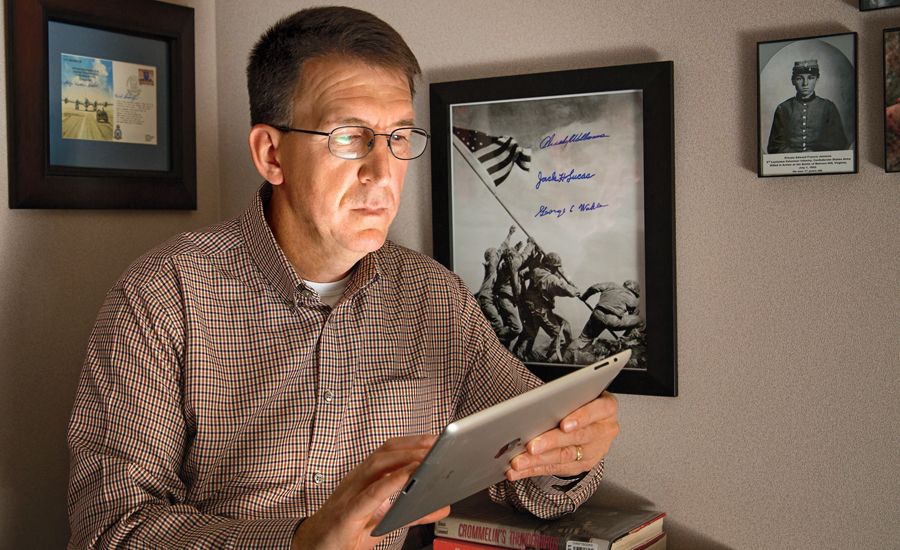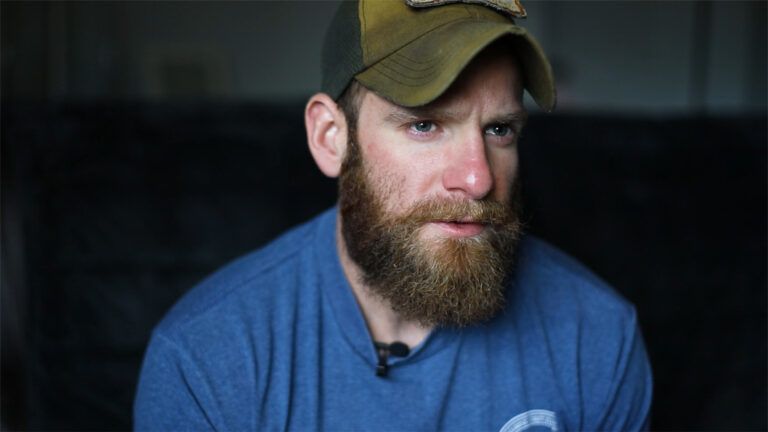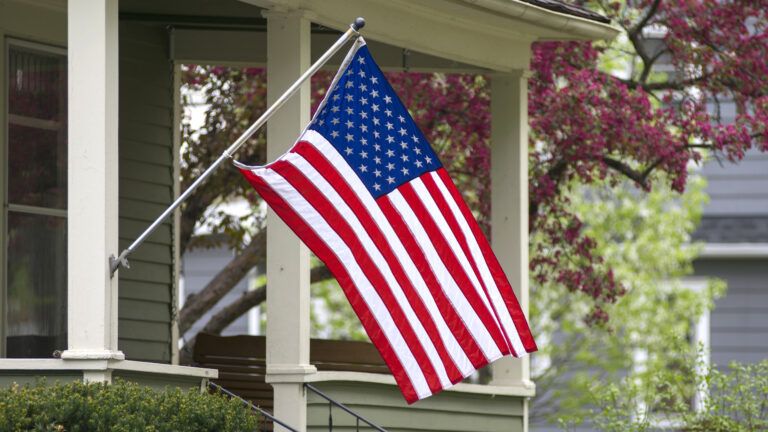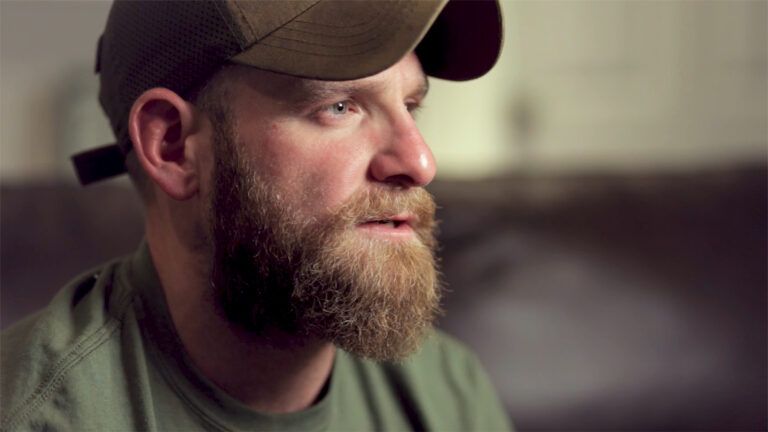“In the absence of orders, act.” That’s something I’d told the men under my command countless times in the 30 years I’d served in the Army. It’s the essence of duty. During our tours in Germany, Korea and Iraq, we had each other’s backs.
Still, I wasn’t with them 24/7 to give direction. Under enemy fire, every single one of us had to make life-or-death decisions in an instant. You couldn’t always wait for orders. You had to act. But I never imagined I’d rely on that same tactic last year, far from the combat zone.
It was a Sunday, August 31. I woke up with a jolt. The clock read 4:45 p.m. My wife, Linda, and I had taken a nap after church and she was still asleep. I could have used a little more shut-eye myself. Our lives were so full, it took near-military precision to juggle everything we had going on.
Bring faith and inspiration to our troops! To donate a Guideposts subscription now, click here.
I’d been retired for three years from active duty, but was so proud to be part of the Army that I got a job as a budget analyst in the housing department at Fort Sill, in Oklahoma.
Linda was a full-time caregiver for her mother, who lived with us—she was blind and had other health issues that meant she couldn’t live alone. Linda also helped our two daughters by watching their kids Monday through Friday—three granddaughters and two grandsons, ranging in age from 18 months to 11 years old. I helped out by picking up and dropping off the two boys every day.
No wonder Linda and I were exhausted. I rolled out of bed, careful not to wake Linda, and went into the kitchen for a glass of water. My iPad was sitting on the counter. Might as well check Facebook until Linda gets up.
Facebook was a great way to stay in touch. I had about 700 friends on the site—mostly soldiers I’d served with over the years. A good sergeant major, a good leader, tries to know what’s going on in his people’s lives.
I logged on. Right away my eyes went to a gruesome photo in my news feed. What in the world? I enlarged the photo on the screen. A bloody forearm with a two-inch slash on the inside wrist.
It was posted by a sergeant who’d served with me in Iraq in the 2nd Battalion, 5th Field Artillery Regiment. After our tour of duty, we’d both returned to Fort Sill, but it had been eight years since we’d seen each other. He was the quiet type, a great guy and a fine soldier. Above the photo, all he’d written was one word. “Goodbye.”
I clicked on a second photo below it: the other arm, also with a long vertical gash on the inside of the wrist. These cuts were deep. The blood was fresh.
I knew the statistics. According to the latest Army report, every 18 hours, a soldier commits suicide. More have taken their own lives than died in combat. This was more than a grim statistic in some report. This was real.
People had commented: “Praying for you!” “Call me if you need to talk.” “Here if you need me!” Wasn’t anyone doing anything? With wounds like that, he could bleed to death in minutes! I hadn’t spent months in Iraq with this soldier to lose him now.
Adrenaline surged through me like I was right back in a war zone. There were no orders. I had to take action.
Problem was, I had no idea where he was stationed. My fingers flew across the screen. “Where are you?” I typed on his wall. I clicked on his “about me” section for clues. I checked places he’d recently visited. Germany came up. Is he overseas?
Right then a notification popped up. I clicked. Someone had left a comment on what I’d posted on the soldier’s wall: “He’s in Korea.”
My fingers pounded the screen. “What camp?” I had to know exactly where.
I grabbed my iPhone and logged on to the Army’s website. At the bottom corner was the number for a toll-free suicide hotline. I called it.
While I was being transferred to the right person, I swiped my iPad screen back to my own Facebook page and updated my status, asking all 700-plus people to help this soldier: “I need my Army family to reach out and find out where he is and get his unit to put their arms around him soon! I’m talking right now!
“He may be in serious danger and I’m worried about his emotional state. He may have tried committing suicide. He needs to know we care. Find him. NOW!” I pressed Post.
More notifications. Somebody gave me the soldier’s camp and division. I hung up with the suicide hotline and logged on to the website for the Army camp in Korea. I found the division directory and dialed the number. It was early morning there.
Even if I could get to the right person, what if it was too late? I paced around the kitchen. Lord, please let someone else be trying to help him too. Please help this hurting soldier.
I waited on the phone, my anxiety mounting. That’s the thing about reacting in the moment. It’s nerve-racking, even for an Army lifer like me.
My iPad buzzed. Another Facebook notification. A message from another soldier in the battalion, Robert Piller. He’d served in Iraq with me and the soldier in danger.
“We got him, Sergeant Major,” he wrote. “I called the hotline and got EMS en route to him. Sergeant First Class Jones got ahold of him and his unit. He’s on the way to the hospital. They say they got to him in time.”
As soon as I finished reading, a staff duty sergeant in Korea answered the phone, confirming what Robert had told me. “We know all about that soldier and he’s on his way to the aid station,” he told me.
“Are you sure?” I asked. I had to be 100 percent positive.
“Yes. You’re the second person to check on him in the last few minutes—the first guy was Stateside too,” he said. I exhaled and leaned against the counter, my arms and legs shaking.
I looked at the clock: 5:10. Only 25 minutes since I was abruptly awakened from my nap like a call to duty. Twenty-five minutes that seemed like forever.
I checked on the soldier later that evening. His status was stable. I sent him a private message on Facebook. “You have people who love and care for you. I’m one of them. Praying for you. If you need anything at all, let me know.”
When Linda got up, I told her everything. “I can’t believe how fast it all happened,” I said.
“Thank God you didn’t fall back to sleep!” she said.
In a life-or-death situation, I’d taken action. So had others. And that made all the difference for my former soldier. You could say we fell back on our military training.
But I’m inclined to agree with Linda. There was more to it. We might not have been given orders, but we’d each been guided by the best leader there is.
Read advice from Joe Lynch, Director of Religious Education, United States Military Academy, on how your congregation can be more veteran-friendly.
Click here to learn more about Veterans Awareness Month and what you can do to help.






